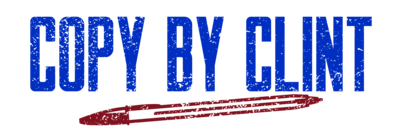It Is Written. Now What? I’m Taking Dave Eggers’ Advice.
Winter, 2014. Unable to sleep and spontaneously inspired in the wee hours at an Ashland, Oregon crackerbox called the Timbers Motel, I jotted down notes for a story. Felt like a long story. Could it be a novel? I’d already spent years ineptly toiling on another novel and, in honest moments, knew it wasn’t worth any more time. This idea felt more complete, intriguing—and necessary. Repeatedly, I spilled the roughage in my head onto my phone screen, turned the device off, closed my eyes, and then more bullet points demanded to be described.
The compulsion lasted. I kept at the story, adding and deepening. Massaging and polishing. On good days, I truly believed that I was “writing a novel.” On those where self-doubt shouted louder, I thought it was likely just another multiple-year-sucking dead end.
Eventually I finished a draft, though. Edited it from start to finish. Let it sit. Read through and edited again.
Thirty-some seasons following those first potentially promising notes, I had written a novel.
Did I break out a special cellar beer to celebrate? You bet. But that’s where the self-congrats ended. The accomplishment is symbolic, really. It’s also a point beyond which things always seemed hazy (at best) and nightmarish (worst). What next? Why write a novel that will go unread? What are the odds anyone beyond my wife (also a terrific editor) and mom (super totally unbiased) would ever see a single page? Do I actually want to be in a position to try to get it published? Do I want to open myself to rejection, even the implied rejection of queries met with silence?
Sure, I wrote a little book about a record that’s out in the world. But this is much different, and it’s been a while since that 33 1/3 volume. I don’t have a literary agent. I have yet to ask a single industry person if they’d be interested. No one knows it exists.
* * *
In February 2018, I attended a Dave Eggers reading in Seattle. He and Mokhtar Alkhanshali, the subject of Eggers’ The Monk of Mokha, appeared together in support of the book. They spoke about Alkhanshali’s harrowing efforts to re-establish Yemeni farmers as world-class coffee producers, an adventure the author captured in the non-fiction tome that reads as a novel.
Seated not far from the stage in a cozy lecture hall, I delighted in Eggers’ enthusiasm for Alkhanshali’s story as well as their easy rapport, evidence of a friendship kindled through words—those of emails, letters, face-to-face dialogue, the multiplying pages of Mokha. I hadn’t attended an Eggers reading before, but had been inspired by his talent since A Heartbreaking Work of Staggering Genius blew me away nearly two decades earlier. Directly hearing how he’d brought one of his ideas to fruition was a true joy.
Following their discussion of Eggers’ latest work, he and Alkhanshali amiably offered to sign books. They took places behind a long folding table in the building’s lobby. Those who wanted to share a moment or two with the writer and the entrepreneur began to queue up.
I’m not one to fawn over celebrities. I’ve been fortunate to talk with a few well-known heroes, but haven’t gushed to anyone since I was a kid. I don’t really like the idea of asking for autographs. From baseball players, rock stars, actors, writers—whoever. I’d rather have a conversation with someone while sipping a beer or a coffee than dote on them. Live and let live.
But I had to thank Eggers for his inspiration. I didn’t need the autograph, didn’t need to compliment him; I just wanted to share my gratitude. So I got in line.
When I reached the table, I was surprised by the men’s friendliness and candor. Eggers was especially present. Pleasantly engaged, I told him that he’d long been an inspiration. He asked what I wrote and I admitted I had completed a draft of a novel. That was true, but the work was jagged and flabby. I was sprinting/staggering through a then-miserable editing process.
Eggers next asked if anyone had read the book I’d written. “Just my wife,” I answered.
Unsolicited, the author offered some advice: “Have at least five people read it. Five people you trust. If there’s a consensus among them that things need fixing, address them.” I’m paraphrasing a lengthier exchanged because my memory sucks, but that was the gist. Five or more trustworthy people. Get their thoughts. Edit things that a majority of them call out.
Eggers said that had been his process all along and it was clear he believed it was necessary. It was also clear that he gave a shit about what I’d told him. I felt heard by him, and his hearing checked a box that I hadn’t acknowledged had long yawned open before me. I’d needed direction. I’d been floundering, mired in self-doubt and fear.
Dave Eggers signed my copy of his book this way: “To Clint—with gratitude and hope.” I like to think the second noun was aimed at my attempts to do what he did. To find success with words.
* * *
Four years or so later, I’m still a would-be novelist. My lengthy work of fiction remains unread by anyone but my wife-cum-editor.
Though not for long. I’m ready to buck up and ask a handful of people to read the work.
I’m afraid of criticism. I’m afraid of praise. I’m afraid of both failure and success. I’m straight-up afraid.
I am not going to be the guy with an unseen novel in a dusty box somewhere, though. Nope. If people think it sucks, I’m going to hear that and make it better. If they say it’s good, I’m going to hear that, too.
Gratitude and hope. I’m feeling both.

